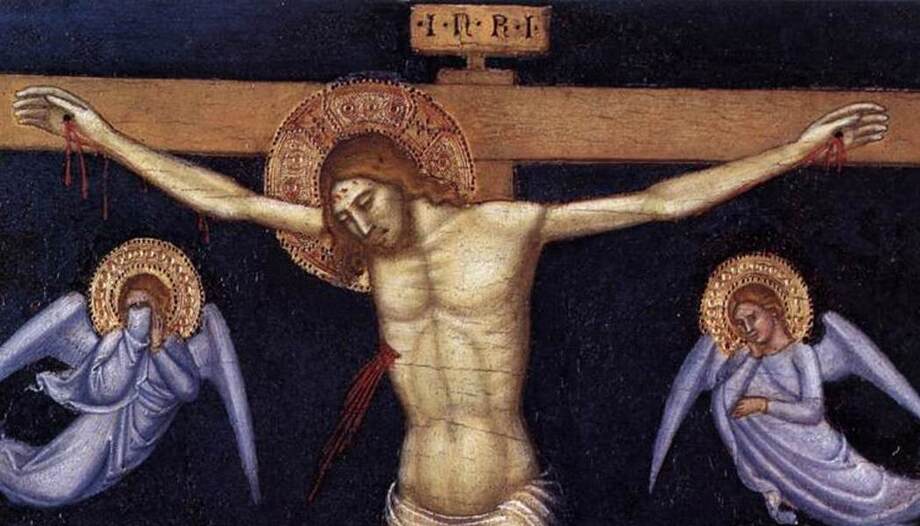The Spanish priest, theologian and Hellenist Josep Vives Solé, S. J. (1928-2015), in his work "Believing in God, Father, Son and Holy Spirit." (1983), offers a simple work of synthesis on God, from philosophy to the God shown by Christ to his Church.
From metaphysics it is possible to speak of God: as the foundation of all beings that do not have in themselves their total reason for being; as the incomprehensible truth that sustains the truths that we understand; the One whose existence we affirm without knowing His essence; the One who explains everything, without Himself having to be explained; The One who, not depending on anything, cannot be demonstrated, proved or known from anything; the Unidentifiable, the Indenominable, the Indelimitable, the Indescribable; the One whom we do not know like the things we know; the Mystery that we affirm without knowing it; the One who has to do with our reality but cannot be adequately understood from our reality.
But God has revealed himself through Jesus Christ to his Church: God has communicated himself and entered history at the end of a continuous line of communications to men:
"In a fragmentary way and in many ways God spoke in the past to our Fathers through the Prophets; In these last times he has spoken to us through the Son whom he instituted heir of all things, by whom also he made the worlds, who being the radiance of his glory and the imprint of his essence, and he who upholds all things by his powerful word, after accomplishing the purification of sins, sat down at the right hand of the Majesty on high, with a superiority over the angels all the greater as he surpasses them in the name which he has inherited" (Heb 1:1-4).
In the biblical story, condensed in this passage, God is primarily the One Who acts with His word and Who communicates in His action.
In the New Testament, Jesus and the Spirit reveal the Father; and the Father really communicates himself in the Son and the Spirit. The historical missions of the Son and the Spirit imply the eternal processes of the Son himself and of the Spirit with the Father: God could not express himself in the temporal order by sending the Father his Son and the Spirit, if he were not, in himself and in his eternity, Father, Son and Spirit.
The Son of the eternal Father has lived and acted in the world and in history for more than thirty years, after being incarnated in the womb of a young Israelite virgin.
Those of us who believe give faith to men who lived with Him and affirmed from a series of experiences - which culminated in the Resurrection of Jesus - that in the man Jesus of Nazareth God Himself was really and immediately communicated. To believe in the apostolic message is to believe that Jesus is the real and effective communication of God to mankind, that, in Jesus, God has entered and worked in history, has become visible (Image of the Father), has revealed Himself (Word or Word of God), has become bodily (Image of the Father), has become the Word of God (Word of God), has become the Word of God (Image of the Father), has become the Word of God.Encarnacion of God). Jesus Christ is not just another word about God or from God, He is the definitive Word of God.
The Christian doctrine of the Trinity is the expression of how God has manifested and acted among us.
History is a succession of related events, interpreted and evaluated, in relation to a principle of intelligibility and meaning, by a subject capable of grasping, interpreting and evaluating these events in their succession. This definition presupposes that there is meaning in the events themselves. History studies these events and seeks their meaning.
It has sometimes been said that if God is the Lord of human history we can no longer speak of history: there would be nothing but the history of the Lord of history, who makes it at his will. But this is not so; God is not the Lord of history in the sense that he manipulates it as he pleases. The conception of the world as a puppet theater in which God entertains himself by pulling the strings is not Christian but pagan.
But God's communication can be rejected by man; the entire Bible bears witness to this dynamic of offer and rejection. The Word of God is never imposing but interpellative: it interpellates men and offers itself to them so that they can give meaning to history. It does not impose itself as a force but as an invitation; and this to the point that, when the Word makes itself present to men in human form, they can even crucify it... History is the time of man's resistance and submission in relation to God. When the possibility of resistance ends, the time of history will end and the time of God's absolute lordship will begin... God has entered history through his Spirit, who is capable of transforming men within their freedom, not annulling it, but empowering it. God and man make history... God, being communication in himself, being Father, Son and Holy Spirit, can also be communication outside himself as Father, Son and Holy Spirit. Neither the pantheistic god, nor the deistic god could have given origin to history.
In addition to the above-mentioned writings of various saints on the existence and being of God, it is also worth reflecting on the holiness lived by the saints themselves, as a testimony or sign of the existence and being of God.
Holiness has attracted powerful attention not only from people who believe in the existence of God but even from thinkers who have considered themselves atheists.





 Leen, Einstein, Girard and Ratzinger
Leen, Einstein, Girard and Ratzinger





